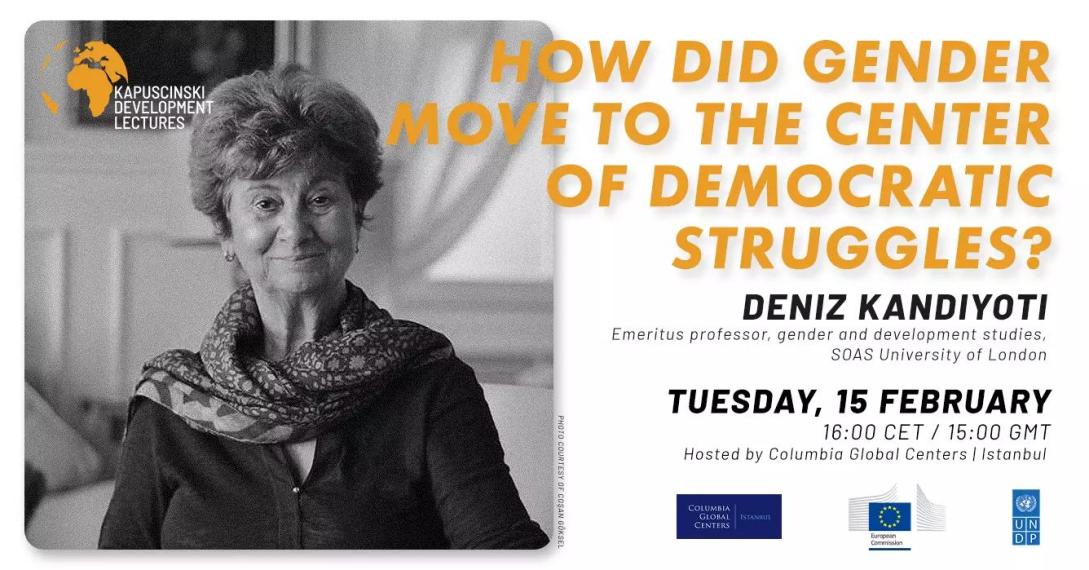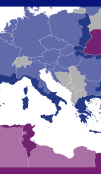Join #KAPTalks with Deniz Kandiyoti: "How did gender move to the center of democratic struggles?"

The politics of gender have come to occupy a central place in debates over citizenship, national belonging, and the future of democratic governance. These debates diverge widely from challenges and to the most basic rights to freedom of movement and education for women in countries like Afghanistan to demanding full recognition of LGBTQI rights in the European Union.
Is there any hope of finding a mutually intelligible language for claim-making and voice in a world where most women (and men) continue to be locked into coerced identities while feminists in the North are engaged in sometimes acrimonious debates over identities, bodies, and sexualities? The answer to this question resides in understanding the influences that have led us to the ‘anti-gender ideology’ moment which has gained momentum with the spread of authoritarian populisms across the globe.
Academic Deniz Kandiyoti argues a combination of both external onslaughts in the form of different types of backlash and the contradictions and dysfunctions internal to platforms claiming to have a feminist agenda have led us to this perilous moment. The challenge before us is to find the imagination and wisdom to forge a new politics of solidarity that resonates across the globe.
Hosted by Columbia Global Centers | Istanbul
The Kapuscinski Development Lectures is an initiative funded by the European Commission.
Bio:
Academic, gender and development studies, SOAS University of London
Deniz Kandiyoti is an Emeritus Professor of Development Studies at the School of Oriental and African Studies, University of London. She holds degrees from the University of Paris (Sorbonne) and the London School of Economics and Political Science (LSE). She was also on the faculty of the Middle East Technical University (1969-74) and Boğaziçi University (1974-1980) in Turkey. She has worked on Turkey, post-Soviet Central Asia, and Afghanistan and developed comparative perspectives on state, gender, and power in the broader Muslim world. She made key theoretical contributions to analyses of patriarchy and male dominance. She is the author of Concubines, Sisters, and Citizens: Identities and Social Transformation (in Turkish, 1997) the editor of Fragments of Culture: The Everyday of Modern Turkey (2002), Gendering the Middle East (1996), Women, Islam and the State (1991) Gender, Governance and Islam (with Nadje Al-Ali and Kathryn Spellman Poots, 2019) and numerous articles on gender, women’s rights, Islam, development, and state policies. She has also acted as consultant for UN Women, UNDP, UNESCO, OSCE, UNIFEM, British Council, DFID, and UNRISD and monitored the gender effects of the Arab uprisings from 2011 as guest editor for 50.50 open Democracy.
Lecture page:
https://kapuscinskilectures.eu/lecture/how-did-gender-move-to-the-center-of-democratic-struggles/
Facebook event page:
https://www.facebook.com/events/238631965113242
Registration link:
https://kapuscinskilectures-eu.zoom.us/webinar/register/WN_LDZOtN0ISZe4iQXDS6fNVA




